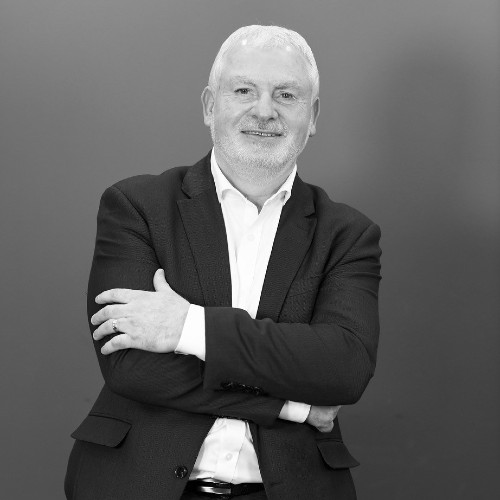19 September 2024
|5 minutes
What dentists should think about when pension planning

Here, Gordon McMillan, Dental Specialist Financial Adviser, shares what dentists should be thinking about when pension planning.
National Pension Awareness Week takes place every September, with the aim of highlighting the importance of preparing and saving for retirement. Many dentists may have personal pensions, an NHS pension or a combination of the two, as well as other possible income streams.
This can make it more complex to understand exactly what they have and what they can expect in retirement. Coupled with a busy work schedule caring for patients, this can mean that thinking about pensions and retirement planning may be put on the back burner.
Pension Awareness Week, however, serves to remind us to think about the difference that effective pension planning can make to our future.
Understanding the cost of delay
The earlier you start saving for your retirement, the easier it will be to reach your goals, as the money you save at the beginning of your career has more time to grow.
To put this into perspective, let’s imagine a young dentist who puts a one-off payment of £5,000 into a pension at the age of 25, with the assumption that they will retire at 65. If we use a net rate of investment return of 5%, for example, by the time that dentist reaches age 65, the £5,000 they contributed when they were age 25 would then be worth approximately £35,200 in their overall pension pot.
Let's play out the same scenario using the same investment growth rates, but this time with a 45-year-old dentist paying the same £5,000 into their pension. In this scenario, by the time the dentist reaches 65 years of age, their £5,000 has grown to approximately £13,266 – nowhere near as impressive as in the former example.
So put simply, the earlier you begin to save, the easier it is for you to fund a good retirement. It's about giving the money you save for the future the longest possible time to grow.
To give a further example, let’s take another 25-year-old dentist and imagine they start making a £600 per month personal pension contribution, with the aim of retiring at age 65. If we make the same growth assumptions, by the time they are age 65 they should have a pension fund of approximately £915,000.
If the same dentist delays starting their contributions by 10 years, and instead starts contributing at 35, to get to the same point at age 65 with the same assumed investment growth they would need to contribute £1,200 per month – more than double the amount.
Of course, it’s not realistic to expect a newly qualified young dentist to know exactly when they will retire and how much they will need.
It is, however, important to acknowledge that they will at some point have to retire, and the reality is that if they don’t provide for themselves and begin that process early, it will be prohibitively more expensive later on in life and more limited in terms of future options and potential.
Getting organised
A Dental Specialist Financial Adviser not only understands dentistry - and its often-complex income patterns - but is also an expert in finance.
They can also help you to understand your NHS pension benefits. Often described as a ‘golden pension’, both the legacy scheme, made up of the 1995 and 2008 sections, and the 2015 reformed scheme, offer a wide range of benefits.
Your adviser can assess your NHS pension statement and project that forward to your ideal retirement age, showing you what your expected retirement position would look like based on your current earnings. They'll also take into consideration any other personal pension pots or income streams.
Recent UK analysis conducted by the Centre for Economics and Business Research estimated that at least 4.8 million pension pots were ‘lost’, and that over £50 billion in savings is at risk of being misplaced.
This is a clear indication that many people are losing money for their futures purely because they may have lost track of a pension with a previous employer, or simply forgotten about it.
There are free online pension tracing tools available to help people track down lost or forgotten pensions, and once relocated, any additions can be factored into your current plans.
Seeking specialist support
Taking the time to meet with your adviser and discuss your aspirations for retirement (for example, when you plan to retire and what you would like to spend your time doing) can help you understand if you are on track with your current pension.
At Wesleyan Financial Services, we have a team of specialists focused solely on dental professionals and their unique financial planning needs. They're here to back you at each stage of life’s journey, from graduation to post-retirement and every step in between.
If you are looking for support with retirement planning or your wider finances, you can speak to a Dental Specialist Financial Adviser from Wesleyan Financial Services by booking a financial review or calling 0800 316 3784. Advice charges may apply.
Please remember the value of investments, can go down as well as up and you may get back less than you invest.

By Gordon McMillan
Specialist Financial Adviser at Wesleyan Financial Services
